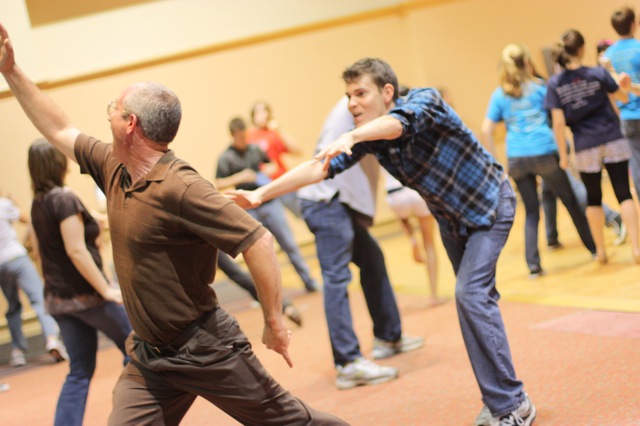Independent – Switching Roles
[fblike]
Here’s the quandary… how does someone know what someone else NEEDS to learn? They can’t, they can only guess based on statistics and past experience. But we’re not living in the past and education is meant to prepare us for the future. So… what to do?
I suggest switching roles.
Let the student be the teacher. Not to sound like a fortune cookie, but the student must teach the teacher which way to go. Otherwise it’s all guess work, busy work, frustration, pulling teeth, etc. We all know the feeling of learning something you WANT to learn, something you feel you HAVE to learn. It’s amazing momentum. And we also know the feeling of being taught something we SHOULD know (but not want to). It’s like being stuck in mud. Why do we forget this (or ignore it) when it comes to education?
I wonder if fear of chaos and anarchy are the culprits. I hear some teachers and parents say “If they had a choice, why would they choose to do math or read Shakespeare? I wouldn’t.” But maybe that’s because these adults are already jaded from their learning experience – being taught in a forced way something that they weren’t interested in at that time.
For me, NEED and WANT are the keys. I know I learn something new when I either NEED to change a current situation: like NEEDING to learn how our kitchen plumbing works because the water’s gushing onto the floor. A week before, you probably couldn’t drag me to a plumbing class, website or book. But because I NEEDED to learn it, I was running to the information and soaking it up (ha ha ha) as fast as I could. And when a passion is ignited, curiosity sparked, I learn because I WANT that uplifting feeling. I only had to watch Gene Kelly and Gregory Hines once to WANT to learn to tap with all my heart. Before then, I had taken a few tap classes as a child but they didn’t really take. But watching these amazingly different hoofers changed everything for me. I saw what I NEEDED to see – that tap didn’t have to be “cute”, it was also pedestrian, casual, aggressive, etc. My earlier tap teachers were just teaching what they thought we SHOULD know and they glazed over my disinterest. Luckily, my parents (powerful teachers in everyone’s life) didn’t glaze over my reactions. They let me teach them what I was interested in and they fed that anyway they could.
SELF OBSERVATIONS
1. Have you ever switched roles? How did that affect your vision of them and your role in the relationship?
2. If not, what stopped you from putting yourself in their shoes?

Comments: 1
This is really a response to a combination of ideas from this particular blog entry and the one on “Unexpected Discovery.”
A man walks across this empty space whilst someone else is watching him, and this is all that is needed for an act of theatre to be engaged. -Peter Brook
It’s simplistic in nature, of course. I find it fun (for lack of a more descriptive word) to think about the man watching in regard to your “Unexpected Discovery” post. When the watching man realizes that he too is being observed (perhaps by the walking man), that moment is unexpected discovery as well. This leads to the idea of the audience as player. Perhaps the main player. Role reversal. What would happen when we allow the audience to steer the course of a plot/moment? What kind of freedom does the performer gain from such audience involvement. Does one gain freedom, or is one then bound to an audience’s will then? Is one bound by an audience in any case?
Don’t get me wrong, I’m not talking about improv comedy (not that there’s anything wrong with that), but perhaps improv drama. I’m sure it exists somewhere. If not, maybe it should.
I’m not making a particular point, merely esoterically exploring these ideas in this forum for a moment.
I like your blog, guys. I’m going to go read the rest of them right now.
Comments are closed.